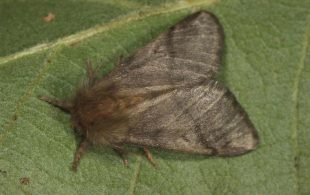Weybridge APHA laboratory was opened in 1917. For 100 years they have made significant contributions to securing a sustainable and safe food supply, improving animal health and welfare, protecting human health, crops and the environment from emerging threats and supporting international trade and UK economy.
I spoke to Director of Scientific Services, Kath Webster, and Epidemiology Workgroup Leader, Jessica Parry, about their important work.
Animal and plant health is a constant, but often under the low-level, concern that impacts on livelihoods, economy, food security, biodiversity and human welfare. APHA (Animal and Plant Health Agency) works to safeguard our animals and plants for the benefit of people, the environment and the economy.
Over the past decade, the UK has been faced with animal health challenges such as avian influenza, bovine TB and foot and mouth disease. APHA’s scientists have been at the forefront of research to assess, mitigate and vaccinate against these diseases. One key area of research is epidemiology which involves the study and analysis of the patterns, causes and effects of different diseases on populations, and Dr Jessica Parry is the Epidemiology Workgroup Leader in the Department of Epidemiological Sciences.
Jessica’s team study the propagation of diseases so that appropriate control measures can be put in place. She is also a discipline champion, encouraging scientists and veterinarians in epidemiology to work together and learn from each other to develop approaches and knowledge for future challenges. APHA also acts as an international reference laboratory for a wide range of these diseases and offer a 24/7 service providing testing, technical training and standardisation of diagnostic methods.
Find APHA open data on everything from bee colony health to the UK's cat population here.

Pests and diseases not only affect livestock, but crops, plants and trees implicating farming, biodiversity and the natural ecosystem. APHA implements plant health legislation to control import and movement of plants, seeds and organic matter to keep pests and diseases out of areas where they could cause extensive damage.
Another challenge APHA faces are non-native invasive species which are a significant cause of biodiversity loss worldwide. Scientists collaborate with universities to better understand these species, the risks they cause to native populations and the best control measures to be put in place.
Kath Webster has been the Director of Scientific services at APHA since 2014, and it is her role to lead and manage the delivery of science. Their Science Strategy outlines how APHA will ensure high quality science is fully embedded across the agency to inform decision making and policy development.
Both Kath and Jessica’s work, along with everyone else’s within the agency, leads to significant impacts on real world issues at the national and international level. Through the science and evidence carried out at APHA, policy makers are appropriately informed to actually make a difference to animal and human wellbeing.
APHA could not be so successful without the continuous hard work and dedication of its’ many managers, scientists and analysts, and the extensive range of research projects they lead on.
Recent Comments